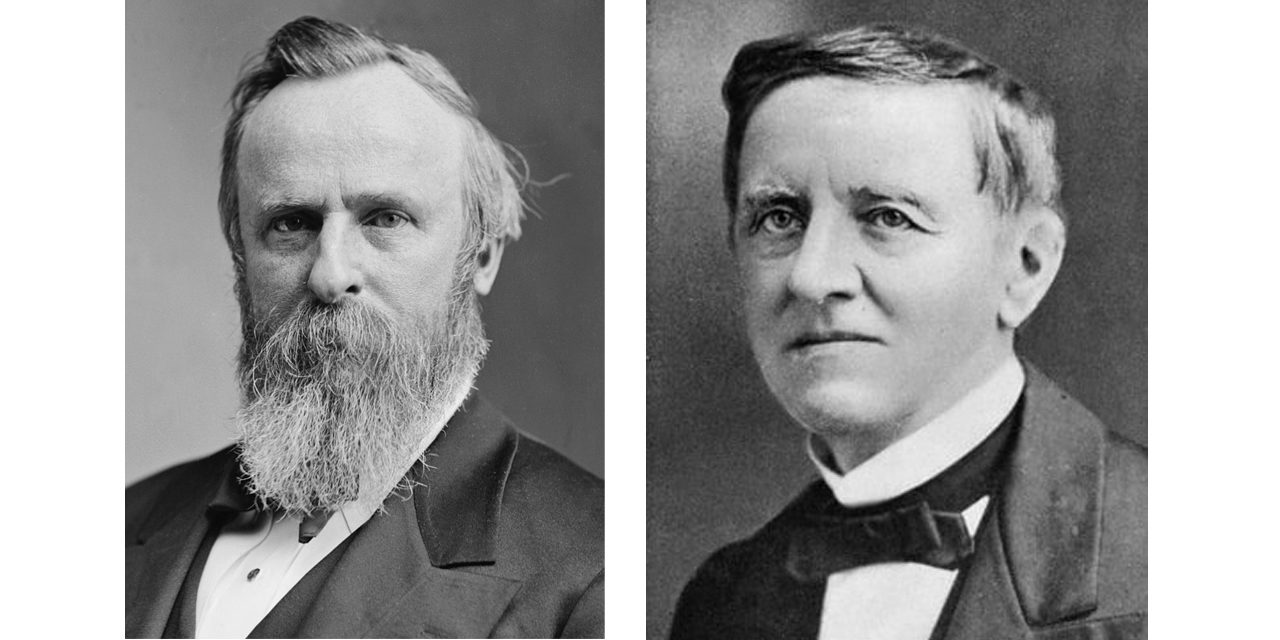Seemingly every election cycle, the media harps about how this is the most important presidential election in the history of the country, but an examination of the nation’s past shows that’s not the case. Almost 150 years ago, the United States was again trying to pick a national leader and it remains the most contentious and contested election in the history of the country.
In 1865, the Civil War, the deadliest war in American history in terms of casualties at roughly 750,000, finally ended with a treaty of peace signed in Appomattox, Virginia. But, as with the end of every war, it was the ensuing years that would be the real test for peace.
Due to the conflict, the Southern Confederacy was deeply scarred, physically and economically, and required federal assistance, which became known as the Reconstruction. The North also decided to reformat the Southern governments to prevent another Civil War and blocked many of the Confederacy soldiers and leaders from voting in general elections in the years immediately following the end of the war.
In 1876, that changed.
After a decade of the government being controlled by the Republican party under the leadership of Ulysses S. Grant, due in large part to the support of the newly emancipated black slaves, the race for his successor would determine the future of the country and either solidify or fracture the fragile Union.
The election was between Democratic candidate Samuel Tilden, governor of New York, and Republican candidate Gov. Rutherford B. Hayes of Ohio.
As reported by The Washington Post, “With each party at full strength for the first time after the war, a highly competitive and partisan atmosphere set the stage for an extremely close election.
“This extreme partisanship and polarization produced exceptionally high levels of interest and engagement. Both political parties worked exceedingly hard to mobilize their base, and the election of 1876 yielded the highest voter turnout in U.S. history, at 81.8 percent.”
To say the election was close is an understatement.
In addition to the alleged voter fraud and intimidation of blacks, there was also a tie in Louisiana, South Carolina and Florida (equaling 19 votes). At the end of the election night, though Gov. Tilden won the popular vote by a staggering 260,000 and seemingly the electoral college at 184, he was one vote short of ensuring the presidency.
With three state elections up in the air and undetermined, a solution was challenging as there was no constitutional precedent and any proposed tie breaker was usually partisan in nature.
There was some desire to turn the situation over to the Supreme Court, but the Democrat party refused that option. Finally, the decision was made to create “an electoral commission with five members of the Democratic House, five members of the Republican Senate and five members of the Supreme Court — including two Democrats, two Republicans, and a fifth justice chosen by the other four. The other justices ultimately selected Joseph Bradley, another Republican, which led the commission to award the returns to Hayes in a series of 8-to-7 party-line votes in mid-February 1877.”
To say the Democrats vehemently contested the decision is an understatement. The situation, in fact, became so heated that there was a very real possibility of a second Civil War.
Thankfully, cooler heads and compromise prevailed.
Gov. Tilden, an unsung hero, decided not to contest the race in order to secure peace for the country.
In addition, Hayes offered his own concessions, pledging to bring “the blessings of honest and capable local self-government” to the South. It was a sign that after 10 years, the federal government was going to end the Reconstruction. After his election became official, Hayes followed through and removed federal troops from South Carolina and Louisiana, which signaled a new era and the United States fully entered the Gilded Age.
Hayes also put a Southerner in his cabinet, a compromise that helped heal old and new wounds.
There are a lot of lessons that can be taken from the election of 1876.
One is that elections do have consequences, and that the future and stability of the country should matter more than winning. If Tilden had contested the election, the country could look much different today.
The second is that voter fraud, which happened during the election of 1876, could very easily happen in this election as well. While it would be much easier to commit fraud in the 1800s, the reliance on mail-in ballots could result in another heavily contested election or election interference. Unfortunately, there will always be people who want to sway the election in one direction or another. For the media to act like there isn’t is dangerous and misleading.
Lastly, despite who wins, at the end of the day the United States needs both compromise and leadership, something that doesn’t seem to happen much in American politics anymore.
Photos from Wikipedia
Visit our Election 2020 page






